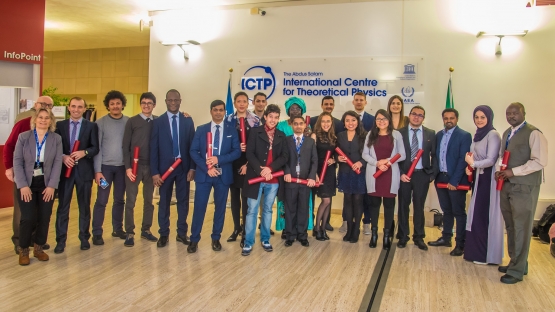The third intake of students to have completed their Masters in Medical Physics (MMP) at the Abdus Salam International Centre for Theoretical Physics (ICTP) in Trieste, Italy, graduated last week.
The MMP, a two years Masters programme supported by the IAEA, is designed to provide young, promising graduates from developing countries who are working in physics or related fields with postgraduate academic and clinical training. The programme is organized in collaboration with IAEA, ICTP, the University of Trieste, the International Organization for Medical Physics (IOMP), the European Federation of Organisations for Medical Physics (EFOMP), the Italian Association of Medical Physics (AIFM) and eighteen clinical hospitals in Italy.
With the graduation of the third MMP class, a total of 46 students from all over the world have successfully completed this highly competitive programme over the past three years (nearly 1,000 candidates have applied to join the programme during this period). Most selected students have received funding from the IAEA to enable their participation.
The first year of the programme is dedicated to academic classroom training at the ICTP. In the second year, students embark on a year of clinical training in hospitals in Italy. Renato Padovani, Coordinator of the Programme at ICTP says, “The programme is designed in a way to have a good balance between classroom and practical training. Moreover, while during the first year students live together and study the theory, they arrive at clinical reality in the second year where they are without their fellow students and have to be proactive”
Medical physics is a key part of healthcare, used widely in radiation medicine in fields that range from diagnostic imaging to radiation oncology. “Once returned to their home hospitals, these students will work with up to 10 or 20 patients per day. As such, over the work life of one medical physicist, training one student can ensure the safe and effective treatment of thousands of patients,” says Harry Delis, Medical Physicist at the IAEA's Human Health Division.





